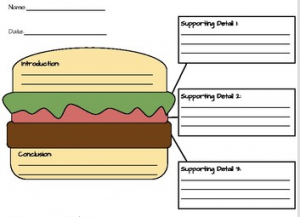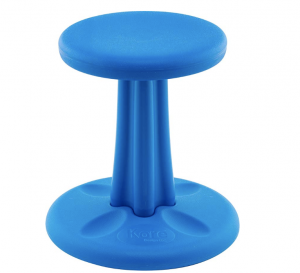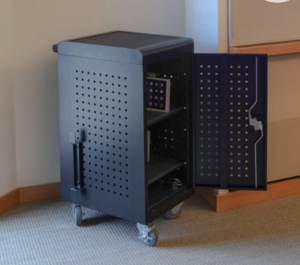Hi!
Today we are going to be talking about some of the easy things and some of the harder things when bringing assistive technology into the classroom. Some of the smaller and more easily accessible things are graphic organizers, alternative seating, fidget tools, noise limiting headphones, and closed captioning. Many classrooms we have been in have DIY fidget tools such as bottles that have glitter or other things in them for students to play around with. You can purchase stress balls and other squishy toys for students to silently use. Online there are several DIY videos for crafty things teachers can make super easily and cheap. Here is a video of one DIY fidget toy you could make for your class.
Graphic organizers are super easy too. They simply require the teacher to create an outline for the given lesson and then print them. This organizer was used in Kaylyn’s class she visited last semester. The teacher used it to visually show students how they should format their paragraph writing.

Headphones will range in price so depending on the funding you get you can explore your options.
Flexible seating can also get pricey. These wobble chairs are $50 on Amazon. In the classrooms we have been in they usually only have around 4. This may become a problem in your classroom so other seating could be used as well. Exercise balls, bean bag chairs, pillows, and carpet areas are all ways you can create different seating and learning spaces easily in your classroom.


Of course one of the biggest things is price. A cart for IPads is $700 on its own IPads aside. This would be a very expensive thing however often the cart is shared between the whole school. Therefore funding would be more accessible as you are not getting a cart for every class.

Overall there are certain aspects of assistive technology that are easy to implement and simply require time. Others become more expensive. In 2019 the Government of Canada put more money into making technology accessible for those with disabilities: http://www.ic.gc.ca/eic/site/118.nsf/eng/home. Families and research institutions can receive money through this. Students in university can receive funding through the The Canada Student Grant for Services and Equipment for Persons with Permanent Disabilities: https://www.at-bc.ca/programs/grant-equipment-for-students-csg/ . This website shares different resources in BC.
As for funding in Elementary schools we weren’t able to find specific resources for funding for assistive technology. However, these things could easily fall under things that other educational funding websites would cover. As well as the PAC could support these types of expenses.